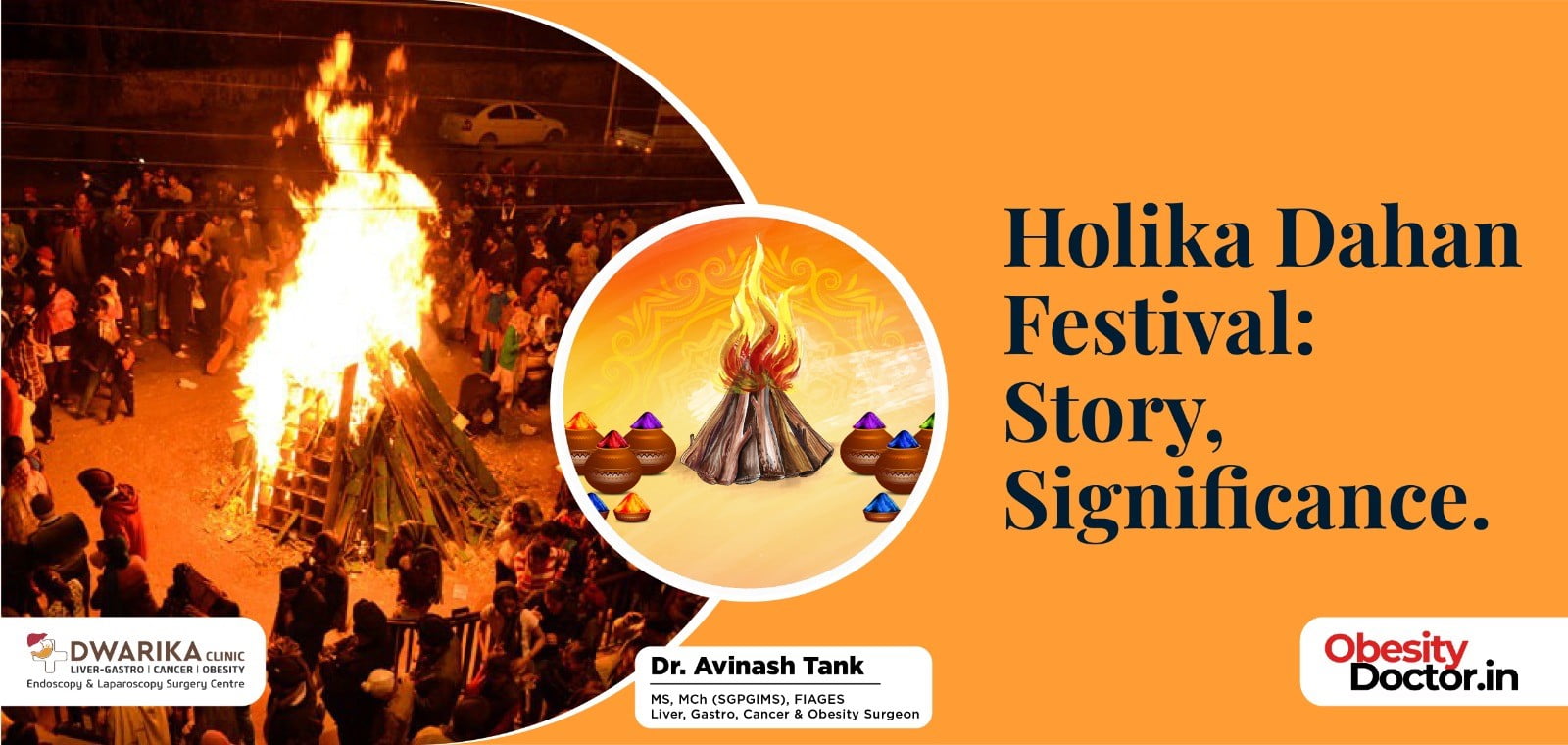
Reading Time: 3 minutes
Holika Dahan Festival: Story, Significance. The Holika Dahan Festival, also known as Chhoti Holi or Little Holi, is a vibrant and symbolic celebration that marks the beginning of the Holi festivities in India.
This joyous occasion signifies the victory of good over evil, observed on the full moon night of the Phalguna month in the Hindu calendar, which typically falls in February or March.
Why We Celebrate Holika Dahan Festival (History & Significance)
The Holika Dahan Festival draws its roots from a fascinating legend. King Hiranyakashipu, an embodiment of evil, possessed a boon that rendered him immune to death.
He grew arrogant and demanded everyone worship him as God. However, his son, Prahlad, remained a devout follower of Lord Vishnu. Enraged by Prahlad’s devotion, Hiranyakashipu plotted his demise.
His sister, Holika, who possessed a cloak that made her fireproof, volunteered to burn Prahlad alive in a pyre.
Miraculously, Prahlad remained unharmed while Holika perished in the flames due to divine intervention.
The Holika Dahan Festival commemorates this triumph of good over evil and Prahlad’s unwavering faith.
Is Holika Dahan a National Holiday?
Yes, it’s a national holiday in India, the Holika Dahan Festival holds immense significance and is widely celebrated across the country. Preparations for the Holika Dahan Festival begin a day or two in advance. People gather wood, twigs, and other combustible materials to build a large bonfire.
How to Celebrate the Holika Dahan Festival
Preparation (1-2 days before):
- Gather Materials: People come together to collect wood, twigs, and other combustible materials to build a large bonfire, called the Holika.
- Cleanse the Area: The designated location for the bonfire is often cleaned and prepared beforehand.
The Day of Holika Dahan (Evening):
- Attire: While there’s no specific dress code, comfortable clothing suitable for sitting near a bonfire is recommended.
- Gathering Around the Holika: As dusk approaches, people of all ages congregate around the pyre.
- Prayers and Offerings: Devotional songs are sung, mantras chanted, and prayers offered to the fire. Traditionally, offerings of coconut, puffed rice (poha), and sweets are made.
- Lighting the Bonfire: A designated person, often an elder, ignites the Holika, marking the official start of the celebrations.
- Effigies of Holika: In some regions, effigies of Holika are placed on the pyre, symbolizing the burning away of negativity and evil.
- Walking Around the Pyre (Optional): Once the flames reach their peak, some people may cautiously walk around the pyre for purification.
- Collecting Ashes: As the fire subsides, some collect the ashes and apply them to their foreheads as a mark of blessing.
Festivities and Safety:
- Music and Dance: Depending on the region, some celebrations may involve music and dance performances.
- Sharing Food: Sweets and snacks are often shared amongst those gathered.
- Safety Precautions: Adults should closely supervise children near the bonfire. Maintain a safe distance from the flames and avoid throwing flammable materials into the fire.
Beyond the Bonfire:
Holika Dahan is a time for families and communities to come together. It’s a reminder of the triumph of good over evil and the importance of faith. Share the spirit of the festival with greetings and well wishes.
Different Names for Holika Dahan Festival Across India
The Holika Dahan Festival is known by various names in different regions of India. Here are a few examples:
- South India: Holika Dahan is sometimes called “Kamadahana”, meaning “burning of Kamadeva” (the God of love).
- Gujarat: Here, the festival is called “Chhoti Holi” or “Shrangi”.
Holi Greetings for the Holika Dahan Festival
Holika Dahan Festival: Story, Significance. Share the spirit of the Holika Dahan Festival with these greetings:
- “May the bonfire of Holika Dahan burn away all negativity and usher in happiness. Happy Holika Dahan!”
- “Wishing you a joyous Holika Dahan filled with light, laughter, and blessings.”
- “May the victory of good over evil inspire you throughout the year. Happy Holika Dahan!”
